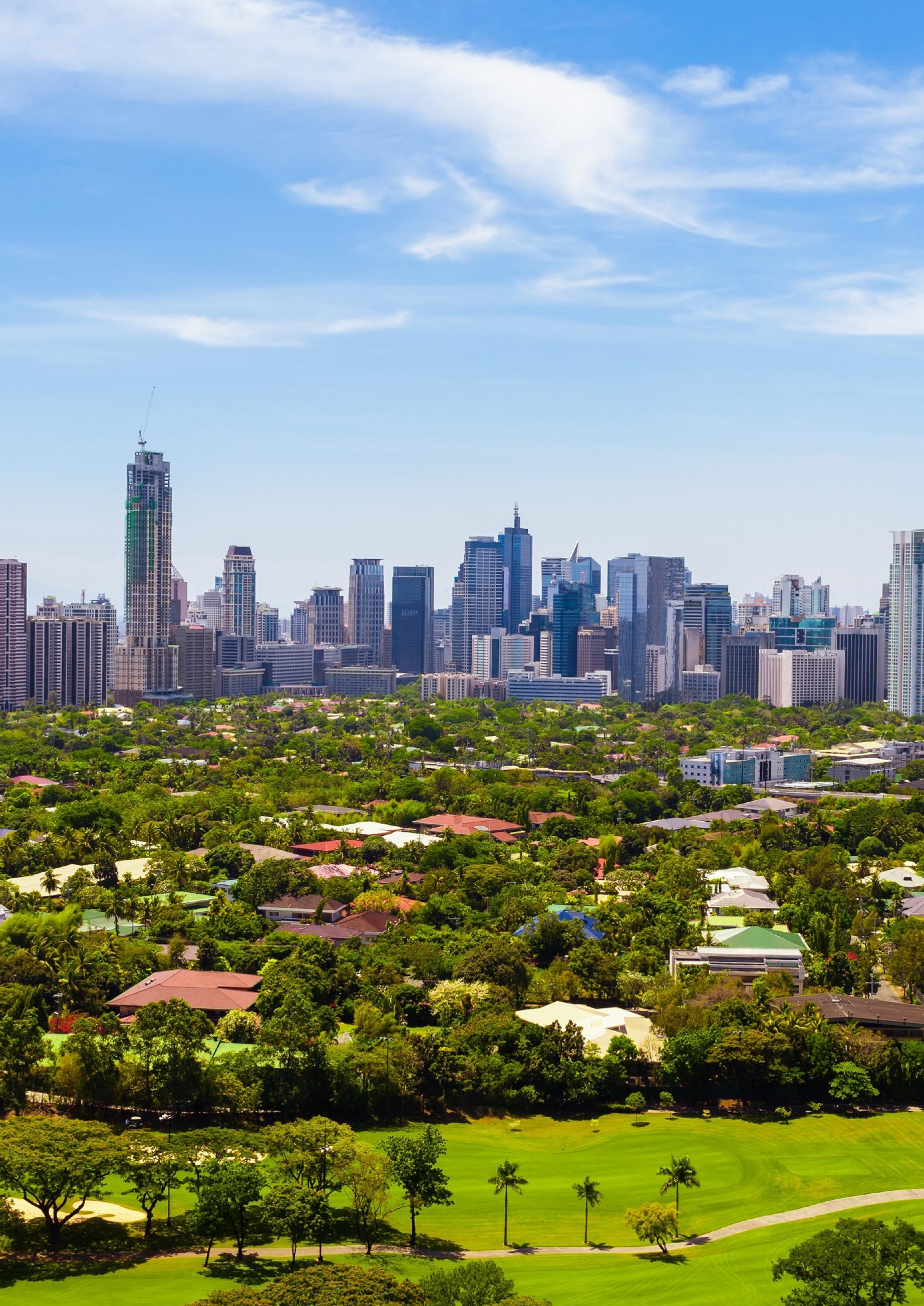
12 minute read
We advocate for the economy
Trade Policies and Government Afairs
As the SARS-CoV-2 pandemic (COVID-19) continues to obstruct regular business activities at present, a new normal emerges around the world. Thanks to today’s technology, most companies globally – even government agencies – are forced to adapt into an indefnite work-from-home setup to help stop the spread of the ongoing pandemic. In response, German-Philippine Chamber of Commerce and Industry (GPCCI) Government Afairs continues to serve as the dynamic entity of advocacy for German businesses in ensuring a stable and predictable business environment and is committed to help the Philippine economic recovery.
As the COVID-19 pandemic continues to afect regular business operations, the issuance of a weekly wrap-up was initiated by GPCCI to keep contacts abreast on government advisories relating to COVID-19. These include a compilation of announcements and proclamations, quarantine protocols, relevant news, and a COVID-19 case tracker.
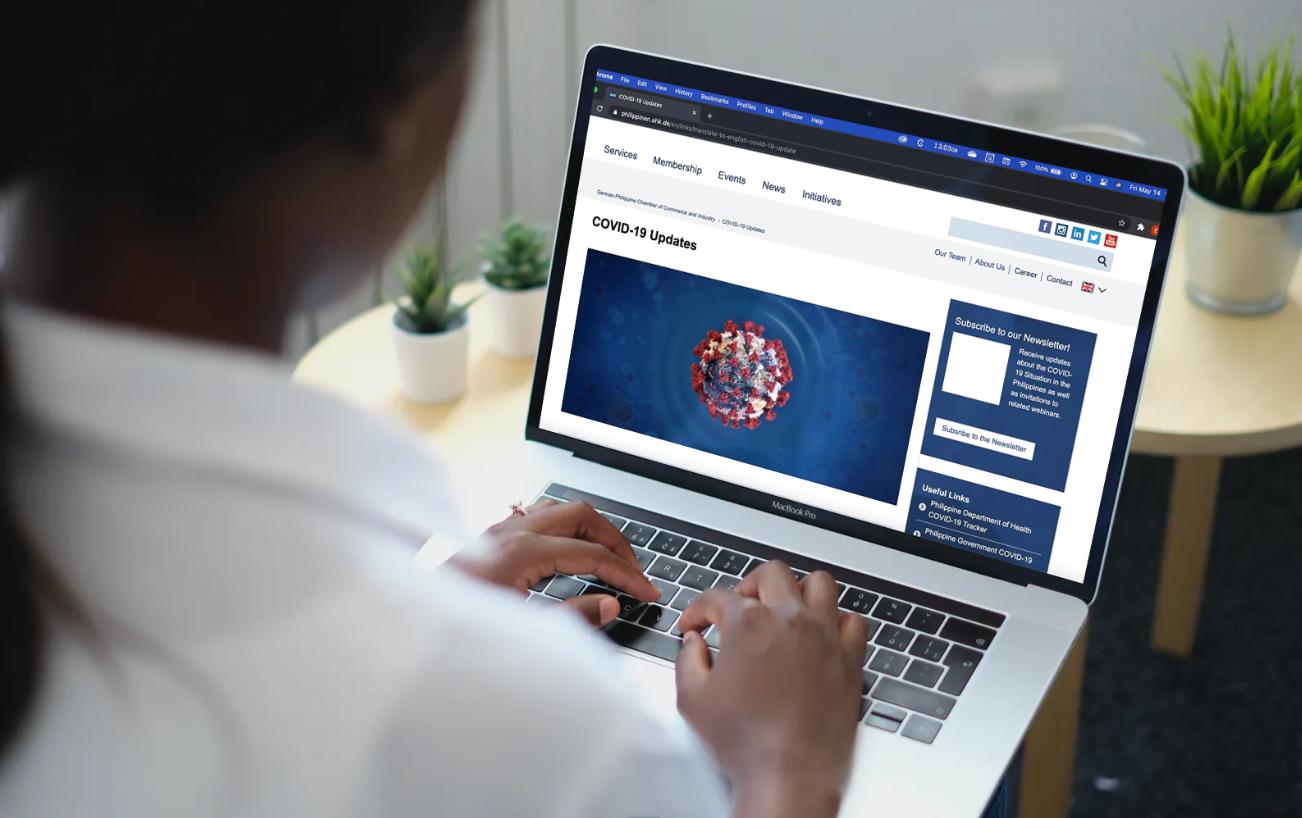
Catalyst of Information during the Pandemic
Yves Aguilos
Head of Government Afairs
yves.aguilos@gpcci.org
Advancing our Member’s Best Interests
The AHK network has always honored the views of GPCCI’s members. Through the Government Afairs department, the chamber has initiated surveys that largely impact the German-Philippine business community such as the biannual AHK World Business Outlook Surveys, involvement in the inaugural Joint Economic Commission talks between Philippines and Germany, and press involvements such as the ABS-CBN News Channel’s (ANC) Market Edge segment entitled “Outside Looking In”.
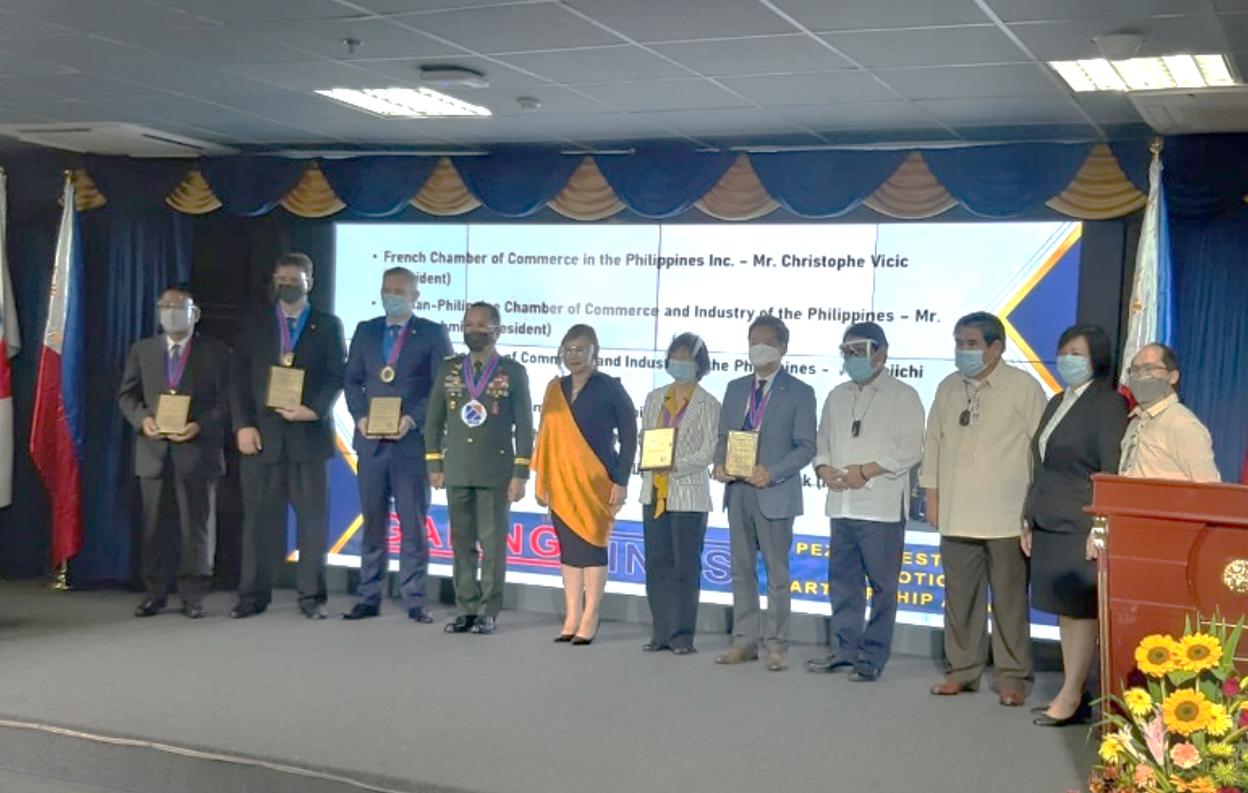

A Strong Partner in Policy and Advocacy
Through the Government Afairs Department, GPCCI has initiated numerous high-level courtesy calls with the Philippine Government. In 2020, the chamber was involved in over 60 policy and advocacy related activities such as government-initiated webinars, administrative consultations, legislative discussions, and COVID-19 related meetings. Furthermore, our strong partnerships have noticeably transpired in 2020 as the GPCCI was awarded with the “Galing Pinas Ecozone Investment Partnership Award 2021” by the Philippine Economic Zone Authority (PEZA) last 24 February 2021 as a result of our continuous promotion of Philippine ecozone competitiveness and making it as a premier investment hub.
I express my sincerest appreciation to the German-Philippine Chamber of Commerce and Industry Inc. (GPCCI) for its continuous eforts to promote the bilateral economic relations between Germany and the Philippines, specifcally in its contributions in attracting more German companies to invest in the Philippines, despite the current situation. GPCCI has always been a strong partner of PEZA in promoting the Philippines as an investment haven in Asia to German and other European investors through the years. Not only that, GPCCI is also generally proactive in participating in policy dialogues afecting investments and exports in the country like the CREATE Act in order to maintain the competitiveness of Philippines investment climate and its export-industry. PEZA assures full support in business endeavors of GPCCI in the Philippines. Indeed, Galing Pinas, Galing Pinas (Made in the Philippines is the Best. The Philippines is Best to Invest in).”
BGen. Charito B. Plaza,
Director General, Philippine Economic Zone Authority
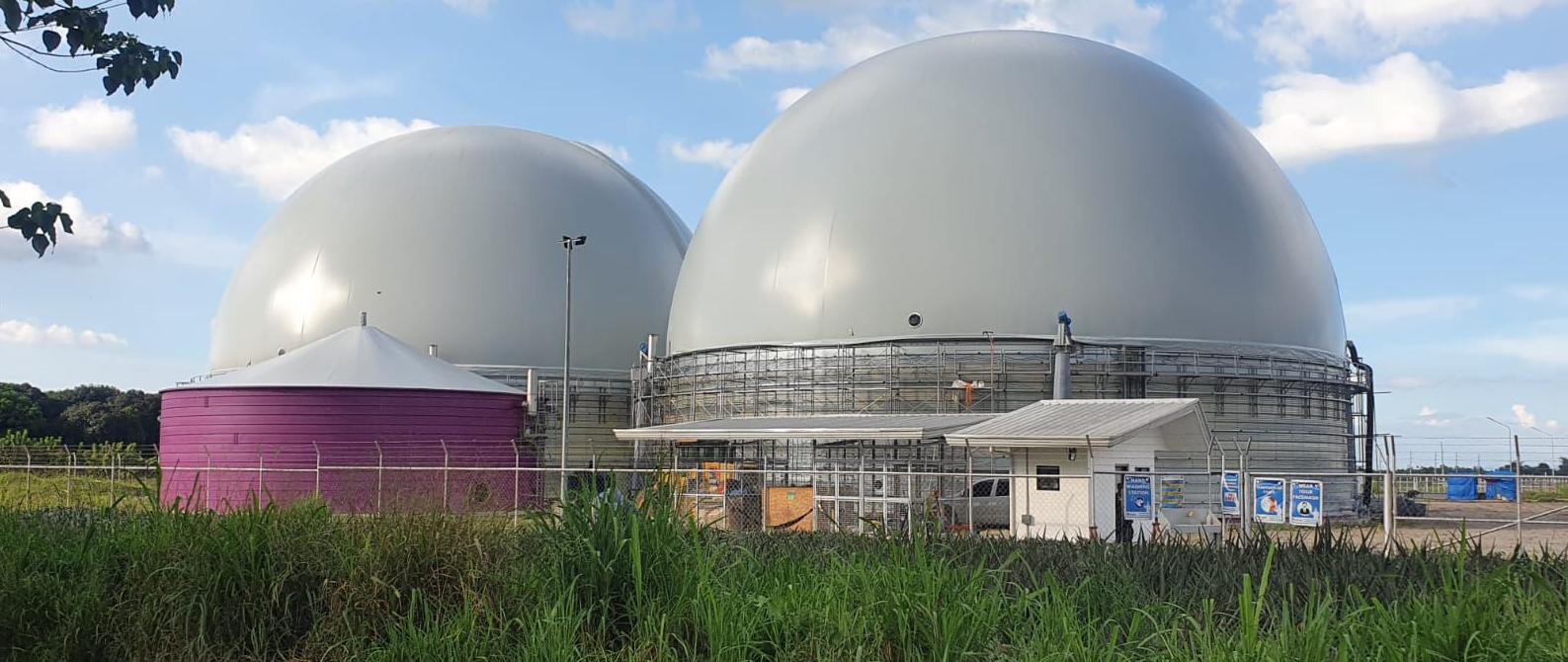
develoPPP.de
Pineapples to Power
In partnership with German biogas technology provider Lipp GmbH, GPCCI is implementing the “Pineapples to Power” project since 2020. This develoPPP.de project supports the renewable energy transformation in the Philippines with German technology and know-how. Lipp GmbH with GPCCI-member company MetPower Venture Partners are building the frst industrialscale biogas plants in Mindanao to process Dole Philippines’ pineapple waste and convert it into biogas. Once fully operational, the two plants will generate clean energy to replace fossil fuel for power, steam and heat generation at the Dole canneries. One of the objectives of the three-year project is to train Filipino biogas plant technicians on the construction, maintenance and safe handling of German technology biogas plants. The frst training series was conducted in March 2021 and attended by more than 70 participants from the industry, relevant government agencies, and the academe. Another objective is to localize biogas knowledge in the Philippines through partnerships with universities. As multipliers of knowledge and centers of research and development, the academe is a strong partner to further the topic of biogas as a viable renewable energy source. This will help the Philippines to reach its climate goals the country committed to when it joined the Paris Climate Accord in 2017. Lastly, a biogas-yield analyzing laboratory will be established with a research partner here in the Philippines. Analyzing biogas-yield, currently done in Germany, is crucial to assess the economic viability and performance of a biogas plant. Localizing this process is yet another step to jump-start the biogas industry in the Philippines. This DeveloPPP.de project is 50% co-fnanced by the German Investment Corporation (Deutsche Investitions- und Entwicklungsgesellschaf – DEG) through public funds of the German Federal Ministry for Economic Cooperation and Development (BMZ).
Jana Everett
Special Projects Project Director
jana.everett@gpcci.org
VET TOOLBOX
Future Movers Program
The Future Movers Programme (FMP) was launched on February 18, 2020 aims to empower internally displaced people (IDPs) in post-confict Marawi, Mindanao, through skills-development and employment facilitation. The German-Philippine Chamber of Commerce and Industry (GPCCI) joined forces with the Asia Society for Social Improvement and Sustainable Transformation (ASSIST), Colombo Plan Staf College, and TÜV Rheinland Philippines, to support the up- and right-skilling of IDPs in an inclusive and market-driven Vocational Education and Training ecosystem. An initial baseline study and economic review identifed construction as a growing industry with corresponding employment opportunities. Drawing from its experiences in German Dual Education and Training, industry-engagement, and the lessons learned from the recently concluded K to 12 PLUS Project, GPCCI established the Industry Placement Committee (IPC). Members include construction companies, civil-society organizations in Marawi, and representatives of the Technical Education and Skills Development Authority (TESDA) in the region. The IPC meets regularly and serves as a consultative body for construction-related skills development and as a platform to advocate for the industry’s active role in skills training and job-placement. A survey on the training and hiring practices of construction companies has been launched to identify potential skills mismatches and help prepare young Filipinos to join the workforce. GPCCI will also roll out its Train the Trainer program for partnering companies to help create a handson learning environment for graduates from participating Technical Vocational Institutes during their on-the-job training or onboarding period. The two-year Future Movers Programme is funded by the European Union through the VET Toolbox.
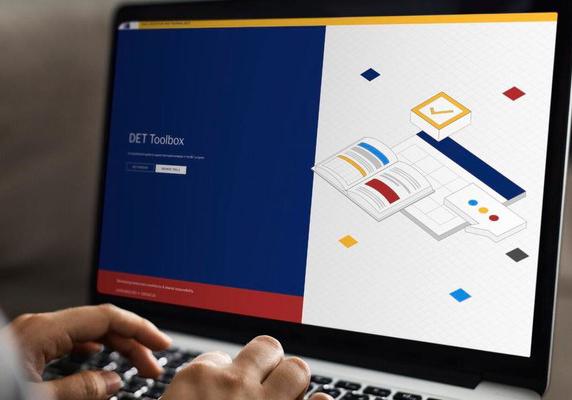
Kristina SIlan
Future Movers Programme Project Manager
kristina.silan@gpcci.org
SENIOR EXPERT SERVICE
Future Needs Experience
The Senior Experten Service is Germany’s leading volunteering organization for experts and executives who are either retired or taking time of from work. Senior Experts provide their knowledge to support sustainable economic and social development. Their assignments are aimed at strengthening local skills across sectors and industries.
Committee Work and Focus Industries
Joint Maritime Committee
In 2020, the German-Philippine Chamber of Commerce and Industry (GPCCI), the Dutch Chamber of Commerce in the Philippines (DCCP), the Nordic Chamber of Commerce in the Philippines (NordCham) and the Philippines Norway Business Council (PNBC) convened a larger coalition called the Joint Maritime Committee that together represent the interests of a large community of maritime companies from Denmark, Finland, Germany, the Netherlands, Norway, and Sweden. The group meets every month through committee meetings to address pressing maritime issues that concern employers, seafarers and other stakeholders. It regularly invites all key players to engage in discussions and facilitate a constant dialogue strengthening the industries partnership with the government.
Last year the GPCCI Maritime Committee approached the Dutch- , Nordic- and Norwegian Chambers to discuss the forming of a Joint Maritime Committee (JMC). This was well received, and the JMC held its frst meeting in August 2020. By representing the local maritime community from seven nations, including 3 of the 10 largest shipowning nations in the world, the JMC is recognized as a stakeholder in local maritime questions, and this is benefting the members.
Tore Henriksen,
Chairman of the Joint Maritime Committee
Renewable Energy Roundtables
As calls for a green and sustainable energy sources gains traction and support worldwide, businesses ofering renewable energy have seen a great potential for the Philippines. With its archipelagic structure, the Philippines takes advantage of clean energy sources like geothermal, hydro, wind, biomass and solar energy, which are among the country’s few competitive advantages as it has no signifcant deposits of fossil fuels. GPCCI’s renewable energy committee serves as the platform to discuss these issues and continues to advocate relevant policies that shall accelerate the development of the sector.
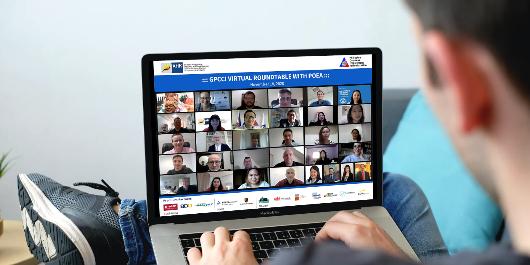
Vocational Training Committee
GPCCI’s VTC members with diferent training needs (providers, in-house training, and vocational training) came virtually together for exchanges of their challenges, experiences, and new solutions. Digitalization and remote training turned into the norm for some, sharing their best practices. Others prepare for the time afer the lif of the lockdown: Working on intensive refresher training and adjusting the curriculum to continue with theoretical subjects, digitally. The main consensus is that the need for creativity and upgrades is a small silver lining during a time of crisis. But solutions were found that can be continued in the future. Also, the virtual meetings showed that training is continuously overlapping with general business operations: Throughout 2020, fatigue was experienced due to the long periods of quarantine. Keeping the motivation and morale high in teams, training and general operations are of high priority.
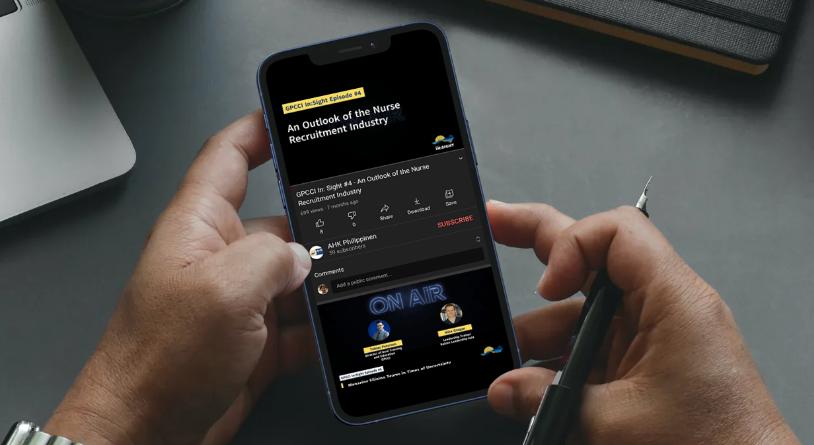
Nurse Recruitment Roundtables
Listen to Podcast
GPCCI Conducts Virtual Events to support Healthcare Recruitment Industry Amidst the Pandemic
Given the declared National State of Emergency since April 2020, the government temporarily imposed a deployment ban for overseas Philippine healthcare workers and later on announced a cap of nurses permitted to work abroad for the country to cope with the national healthcare crisis. In order to voice out and support the healthcare industry during these challenging times, GPCCI organized two roundtables events in virtual format and one podcast.
Virtual Meeting: Exchange on Nurse Recruitment– April 27, 2020
Amidst the current deployment challenges brought by the pandemic, a virtual meeting was held by GPCCI with the German-Philippine nurse recruitment industry to exchange on best practices. Company representatives remained optimistic despite the temporarily deployment ban restriction imposed by the government. Member companies await for the Covid-19 crisis to be over to get back to business.
GPCCI Virtual Roundtable with POEA – Nov. 18, 2020
As the healthcare recruitment sector continues to look for the best ways to operate during the pandemic, a virtual roundtable was hosted by GPCCI. The forum was participated by the Philippine Overseas Employment Administration (POEA) Director for Pre-Employment Services, Mr. Levinson Alcantara and over 40 representatives from the healthcare recruitment industry to discuss current regulations, best practices as well as updates on the deployment ban of Philippine nurses to Germany.
MORE THAN A MARKET
Business and Society
GPCCI is convinced that a social market economy leads to more employment and prosperity, and ultimately to an inclusive economic growth. Centuries ago, the Honorable Merchant was introduced in Europe and has shown its positive impact since. It is applicable even today as companies refer to Corporate Social Responsibility (CSR), corporate citizenship, responsible business conduct or stakeholder management. In the best case, corporate social responsibility measures are aligned with the core business of a company and make a valuable contribution to society. The Chamber provides a platform for a lively discussion on challenges and solutions on how to conduct business responsibly while maintaining a healthy fnancial bottom line. GPCCI presents the guiding principles of its work and wishes to encourage its engaged membership to communicate and share actively their programs and projects with the network. Our members curious about a potential strategic alignment may approach the Chamber any time.
United Nations Global Compact

GPCCI advocates the ten principles of the UN Global Compact and has joined the initiative. The UN Global Compact provides a universal language for corporate responsibility and provides a framework to guide all businesses regardless of size, complexity or location.
By incorporating the Ten Principles of the UN Global Compact into strategies, policies, and procedures, and establishing a culture of integrity, companies are not only upholding their basic responsibilities to people and planet, but also setting the stage for long-term success.
The UN Global Compact Principles
Human Rights
• Principle 1: Businesses should support and respect the protection of internationally proclaimed human rights; and • Principle2: make sure that they are not complicit in human rights abuses.
Labor
• Principle 3: Businesses should uphold the freedom of association and the efective recognition of the right to collective bargaining; • Principle 4: the elimination of all forms of forced and compulsory labor; • Principle 5: the efective abolition of child labor; and • Principle 6: the elimination of discrimination in respect of employment and occupation.
Environment
• Principle 7: Businesses should support a precautionary approach to environmental challenges; • Principle 8: undertake initiatives to promote greater environmental responsibility; and • Principle 9: encourage the development and difusion of environmentally friendly technologies.
Anti-Corruption
• Principle 10: Businesses should work against corruption in all its forms, including extortion and bribery.
Corporate Social Responsibility
GPCCI has been actively involved in community-level social work such as donating to the the Doehle Shipmanagement-led donation drive for Taal victims, and environmental eforts such as donating plants to the urban garden of Doehle Haus Manila, partnering with social company Pink Flamingo, and organizing webinars that center on the UN Sustainable Development Goals. The virtual reality that was 2020 did not stop the eforts of the Chamber to be responsible social actors, especially in times of crises.

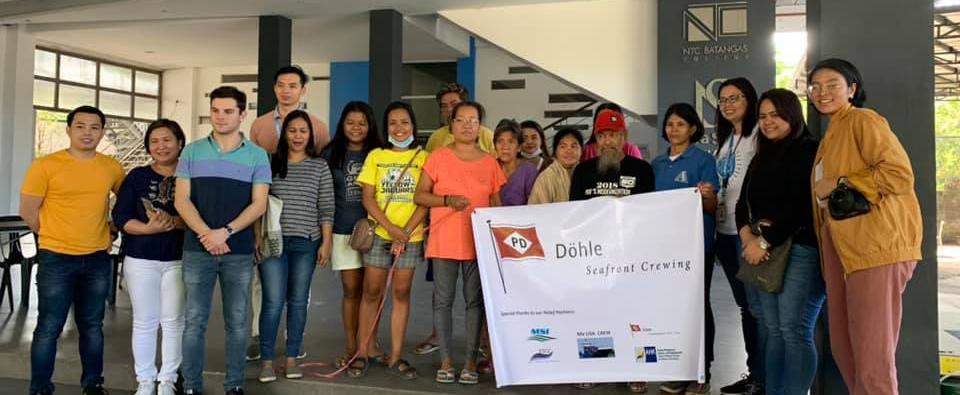
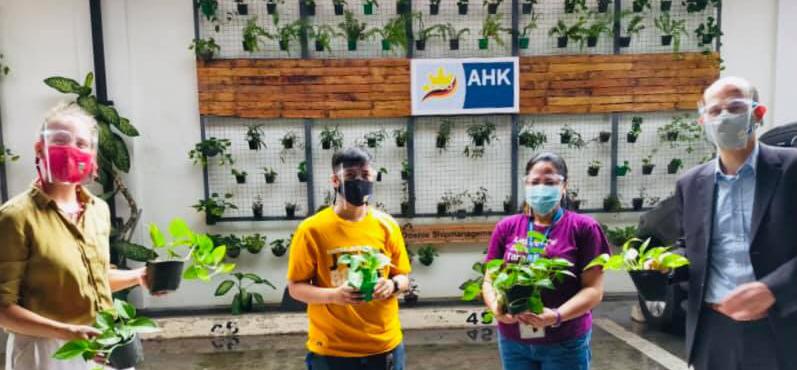
German Chambers ASEAN Business Council
There are seven AHKs in the ASEAN region: In Indonesia, Malaysia, Myanmar, the Philippines, Singapore, Thailand, and in Vietnam. Together they cooperate as the German Chambers ASEAN Business Council (GCABC) to provide a dialogue platform, strengthen regional cooperation and to support regional trade and investment. That makes it even more convenient for German companies that have business partners in more than one ASEAN country.



